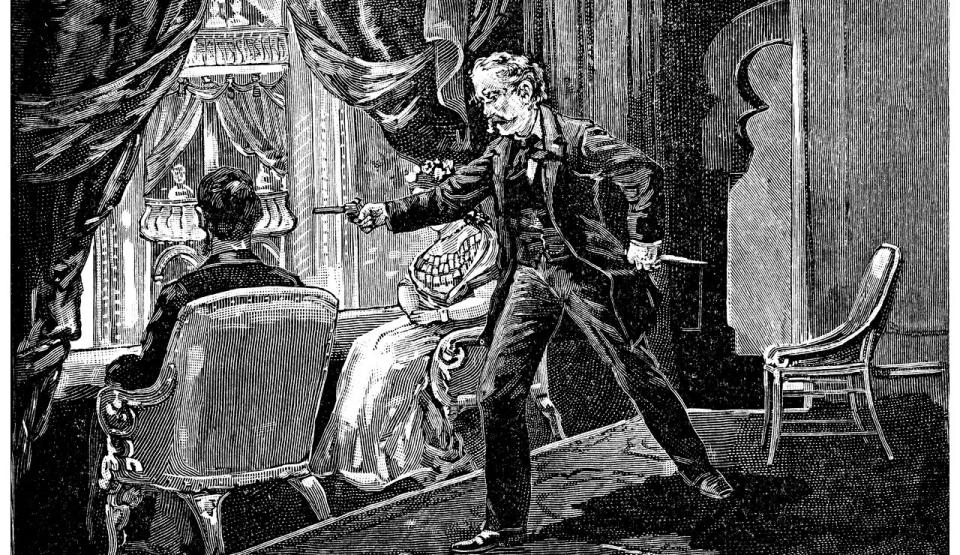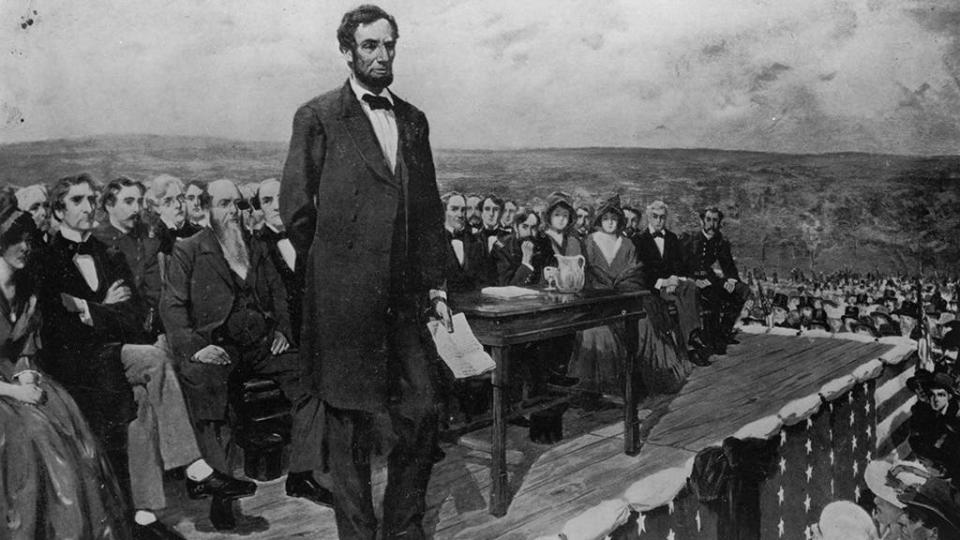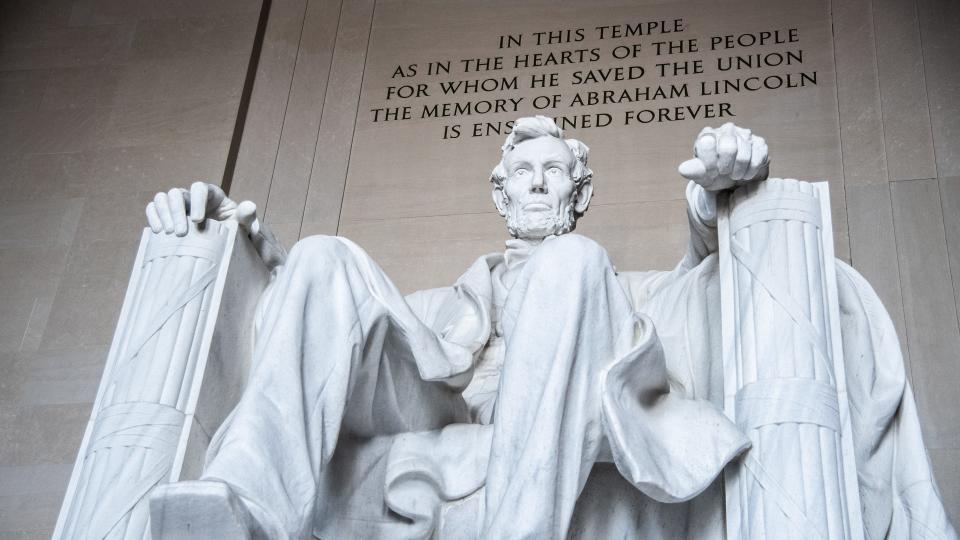On this day in history, April 15, 1865, President Abraham Lincoln passes away

President Abraham Lincoln died in Washington, D.C., on this day in history, April 15, 1865, one day after he was shot by actor John Wilkes Booth.
Lincoln, who was elected president in 1860, was the first U.S. president to be assassinated.
He was survived by his wife, Mary Todd, whom he married in 1842, and his sons Robert and Tad.
ON THIS DAY IN HISTORY, APRIL 14, 1910, PRESIDENT TAFT THROWS OUT FIRST PITCH AT MLB GAME
The president was shot while he was attending a performance of "Our American Cousin" at Ford's Theatre in D.C.
During one of the funniest lines of the play, Booth entered the presidential box — and fired a shot into the president's head, according to the Ford's Theatre website.

"At the moment the president was shot he was leaning his hand on the railing, looking down at a person in the orchestra, holding the flag that decorated the box aside to look between it and the post," according to the witness statement of James P. Ferguson, an audience member that night.
Witness statements from the assassination and its aftermath are published on the Ford's Theatre website.
"I saw a flash of the pistol in the right back of the box. As the person jumped over and lit on the stage, I saw that it was Booth," the witness statement continued.
Both actors and audience members initially thought the shot was part of the show, the various witness statements indicate.
ON THIS DAY IN HISTORY, FEBRUARY 6, 1911, PRESIDENT RONALD REAGAN IS BORN IN ILLINOIS
"At first I thought it was some ‘gag’ introduced into the play, but presently there was commotion on the stage and an uproar in the audience," said Jeannie Gourlay, an actress at the theater.
"The confusion was great the moment the pistol was fired, and my first thought was that there was a side scene of the play," said the Hon. Frederick A. Sawyer, who was in the audience that night.

"Instantly I remembered that there was nothing of this sort in the play, but by the time I had recovered my thoughts sufficiently to realize that such was not the case, the man had disappeared," he said.
After the shot, Maj. Henry Rathbone, who was in the box with the Lincolns as their guest, fought with Booth in an unsuccessful attempt to capture the assassin.
ON THIS DAY IN HISTORY, NOV. 8, 1864, PRESIDENT LINCOLN DEFEATS GEN. MCCLELLAN TO WIN REELECTION
Booth then leaped from the box down to the stage, "landing awkwardly," said the Ford's Theatre website.
"He held in his right hand a dagger whose blade appeared about 10 inches long — he did not strike the stage fairly on his feet, but appeared to stumble slightly," said Frederick A. Sawyer, an audience member.
Booth then yelled, "Sic semper tyrannis!" ("Thus always to tyrants!") and "The South is avenged!" before fleeing.
Lincoln, gravely wounded, was transported across the street to the Petersen boarding house, the Ford's Theatre website says.
ON PRESIDENTS DAY, ADVICE FROM WASHINGTON AND LINCOLN THAT'S STILL RELEVANT TODAY
He died the morning of April 15, at the age of 56.
Born in Hodgenville, Kentucky on Feb. 12, 1809, Lincoln attended only one year of formal schooling as a child.
"My parents were both born in Virginia, of undistinguished families — second families, perhaps I should say," wrote Lincoln during the 1860 presidential campaign.
"When I came of age I did not know much. Still, somehow, I could read, write, and cipher … but that was all," he said in the 1860 writing, published on the White House's website.

At the age of eight, Lincoln moved to Indiana with his family; his mother would die only two years later.
When Lincoln was 21, he moved to Illinois, says the website AbrahamLincoln.org.
Lincoln served as a captain in the Black Hawk War — then spent eight years in the Illinois legislature, notes his official biography on the White House website.
ON THIS DAY IN HISTORY, NOV. 7, 1962, TRANSFORMATIVE FIRST LADY ELEANOR ROOSEVELT DIES IN NYC HOME
Despite his lack of formal education, Lincoln became an established lawyer and received a law license in 1836. He was elected to the House of Representatives in 1846 as a member of the Whig Party, notes AbrahamLincoln.org.
He made an unsuccessful bid for the U.S. Senate in 1858, losing to Stephen A. Douglas.

"He lost the election, but in debating with Douglas he gained a national reputation that won him the Republican nomination for president in 1860," said the White House website.
During Lincoln's presidency, the Civil War erupted as 11 states seceded from the United States of America.
In 1863, Lincoln signed the Emancipation Proclamation, which freed enslaved people in the Confederate states.
CLICK HERE TO SIGN UP FOR OUR LIFESTYLE NEWSLETTER
Lincoln was reelected president in 1864 — but was killed just over a month after his inauguration for a second term.
For more Lifestyle articles, visit www.foxnews.com/lifestyle.
Original article source: On this day in history, April 15, 1865, President Abraham Lincoln passes away
